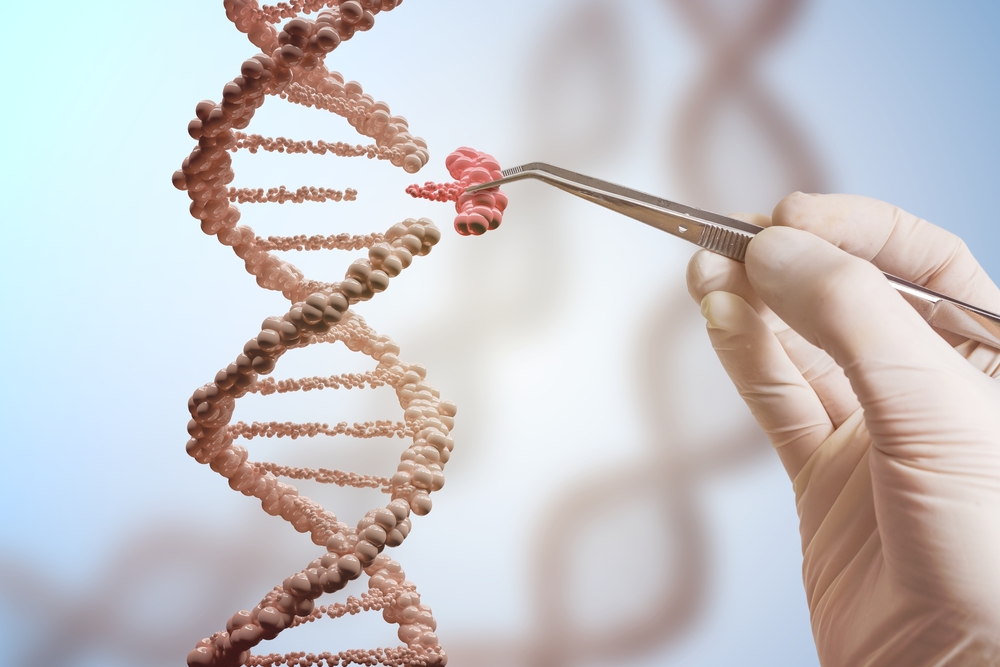Preliminary Results Show Promise in Clinical Trial of ABO-101 for Sanfilippo Syndrome Type B
Written by |

Abeona Therapeutics has reported preliminary 30-day safety and efficacy results from the first patient dosed in the company’s ongoing Phase 1/2 trial of a single treatment gene therapy candidate for Sanfilippo syndrome type B.
The trial (NCT03315182) is testing Abeona’s first-in-human, adeno-associated viral (AAV)-based gene therapy ABO-101.
The treatment consists of a one-time, intravenous delivery of ABO-101 containing a functioning copy of the NAGLU gene to cells of the central nervous system and peripheral organs, to correct the effects from the genetic mutations that cause the disease.
Sanfilippo syndrome type B, also known as mucopolysaccharidosis type IIIB (MPSIIIB), is characterized by the body’s inability to break down large sugar molecules called mucopolysaccharides, or glycosaminoglycans.
In patients with MPS IIIB, gene mutations result in a marked decrease in NAGLU enzyme activity, which leads to an accumulation of heparan sulfate in the brain and other organs, as well as progressive brain atrophy.
Patients enrolled in the trial will receive either a high dose or a low dose of ABO-101. The first patient, included in the low-dose group, showed the treatment was well-tolerated, with no treatment-related adverse events or serious adverse events at 30 days after treatment.
The patient also showed significant heparan sulfate reductions observed in cerebral spinal fluid (50%), urine (69%), plasma (60%) and urinary total glycosaminoglycan (67%).
Importantly, the decline in cerebral spinal fluid heparan sulfate from the start of the study supports earlier clinical observations that ABO-101 can cross the blood brain barrier after intravenous administration.
The patient also had a greater than 300-fold increase over baseline in NAGLU enzyme activity at 30 days post administration.
Preclinical studies in animal models have demonstrated that administration of a single dose of ABO-101 restored production of the NAGLU enzyme, with animals showing sustained improvements in cognitive and neuromuscular function for months after treatment, as well as a normal lifespan.
Safety and efficacy studies of AAV gene therapy treatments for Sanfilippo syndrome have been published in different peer-reviewed scientific journals.
“The reduction of heparan sulfate, the key biomarker of disease pathology in MPS IIIB, at 30 days post gene transfer indicates early and robust systemic delivery of ABO-101, and further supports our planned approach using intravenous delivery of ABO-101 in the treatment of Sanfilippo syndromes,” Timothy J. Miller, PhD, president and CEO of Abeona, said in a press release.
“Consistent with our ongoing ABO-102 clinical trial in MPS IIIA, these findings support our plans to continue enrollment in this trial pending review by the DSMB,” he added.
Kevin M. Flanigan, MD, the trial’s principal investigator and director of the Center for Gene Therapy at Nationwide Children’s Hospital, said Sanfilippo type B is a “devastating and progressive lysosomal storage disease with no approved treatment options. The first patient treated with ABO-101 has demonstrated that the systemic AAV gene transfer is well-tolerated, and the preliminary evidence of biopotency in the CNS and periphery is very encouraging.
“We are especially pleased to see reductions in several key biopotency markers, including the reductions in cerebral spinal fluid, urine and plasma heparan sulfate and normalization of plasma NAGLU enzyme activity at days seven, 14 and 30 post-transfer,” added Flanigan, also a professor of pediatrics and neurology at The Ohio State University College of Medicine.
The trial is enrolling by invitation at Nationwide Children’s Hospital in Columbus, Ohio. For more information, go to the trial webpage here.
Researchers expect to study a total of nine patients pending a review by an independent Data Safety Monitoring Board. The study is anticipated to be complete by 2020.
The U.S. Food and Drug Administration (FDA) granted ABO-101 orphan drug status. The investigational therapy also received FDA Rare Pediatric Disease designation.





